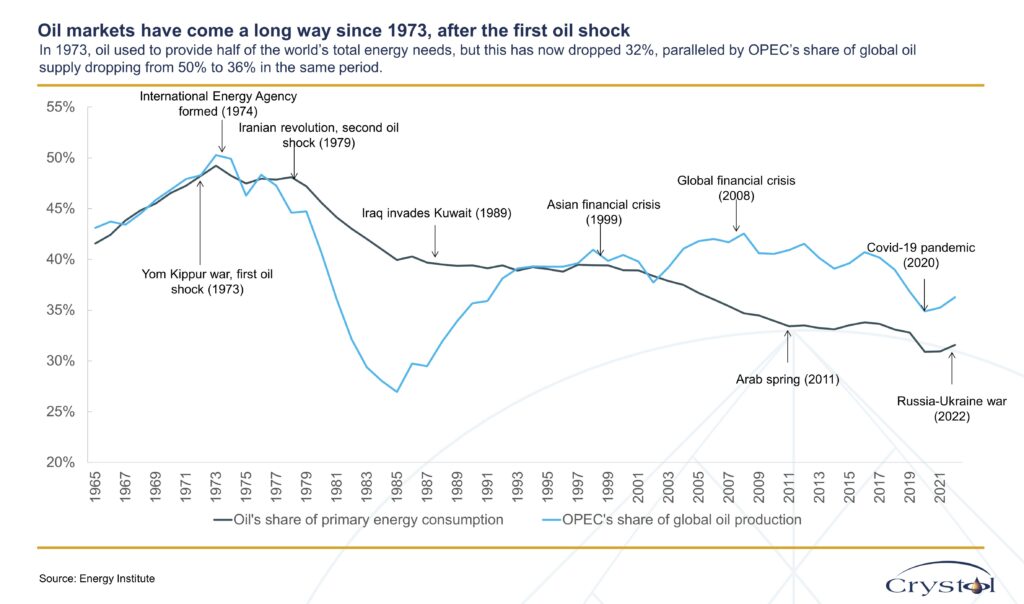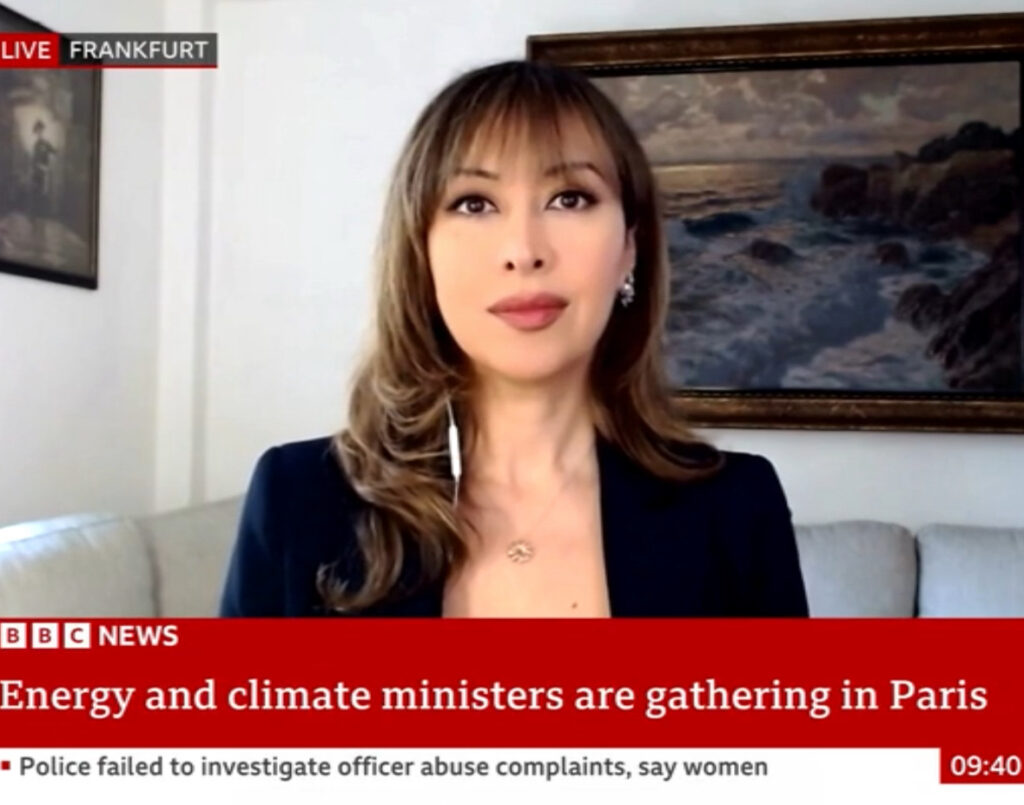In this interview given to BBC News, Dr. Carole Nakhle, CEO of Crystol Energy assesses the evolution of oil markets since the first oil shock in 1973.
Key takeaways:
– The 1973 oil crisis happened when Arab oil producers decided to reduce their production in retaliation of the Western power’s support to the war between Egypt and Israel, also known as the Yom Kippur war. The reduction in output sent oil prices soaring within a short time span and remained elevated for several years.
– Oil markets have come a long way since. Despite the ongoing war in Ukraine and Gaza, attacks in the Red Sea and sanctions on key oil producers such as Russia, Iran and Venezuela, and OPEC+ cuts, oil markets have remained relatively calm.
– In 1973, oil used to provide half of the world’s total energy needs, and this has now dropped 32%. Similarly, OPEC’s share of global oil supply has dropped from 50% to 36% in the same period.
– Today the world is better equipped to deal with an oil shock than it was back in 1973.
– Supply disruptions could always happen and cause price spikes, but those spikes are unlikely to be long-lasting.

Related Analysis
“A rising China is reshaping global energy markets“, Dr Carole Nakhle, Nov 2023
Related Comments
“Analysing the oil market: Insights from Dr. Nakhle and Ole Hansen“, Dr Carole Nakhle, Jan 2024
“Oil markets, OPEC+ and COP28“, Dr Carole Nakhle, Dec 2023









